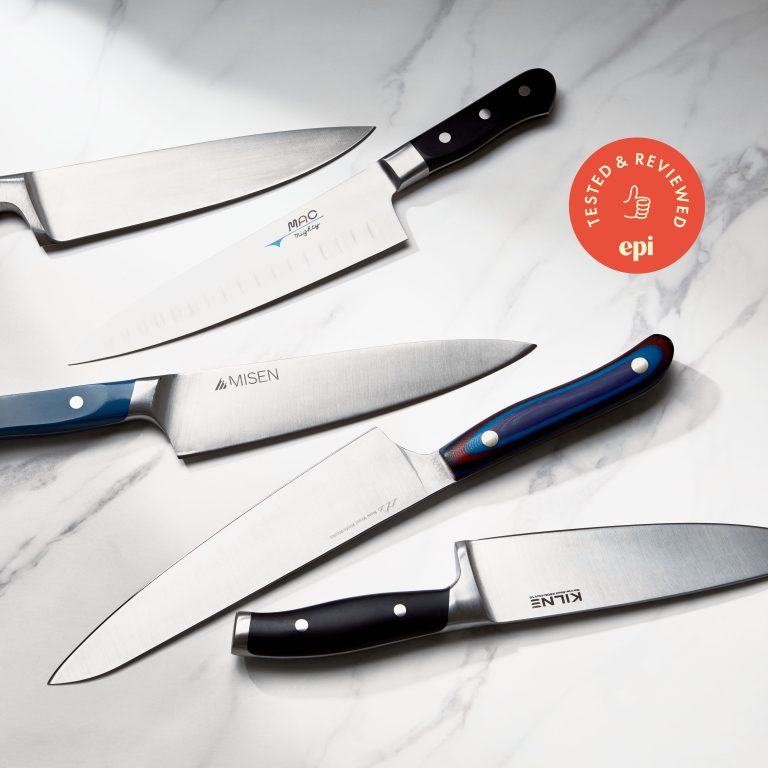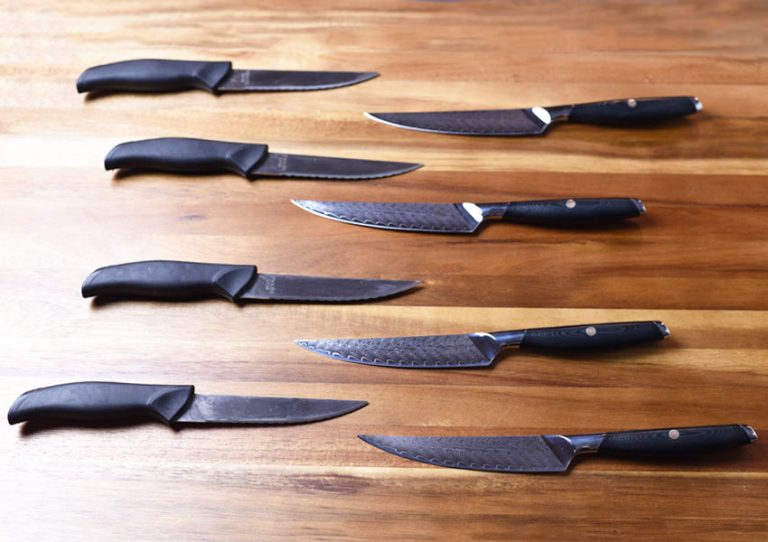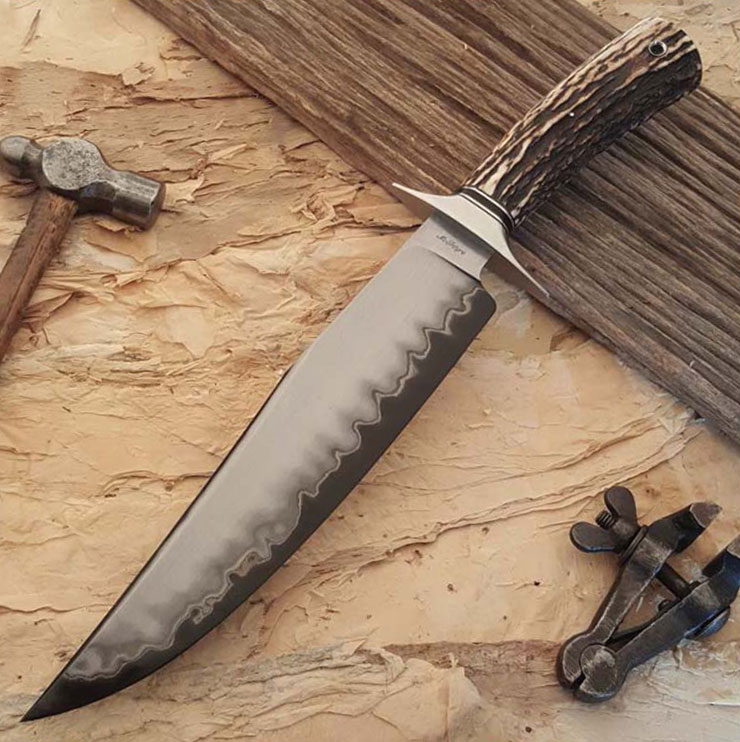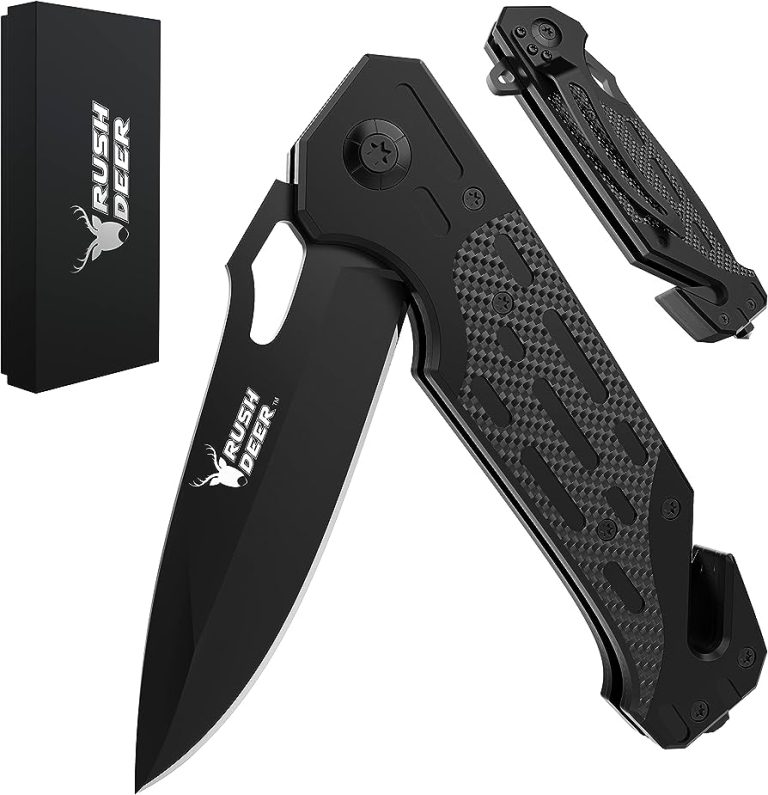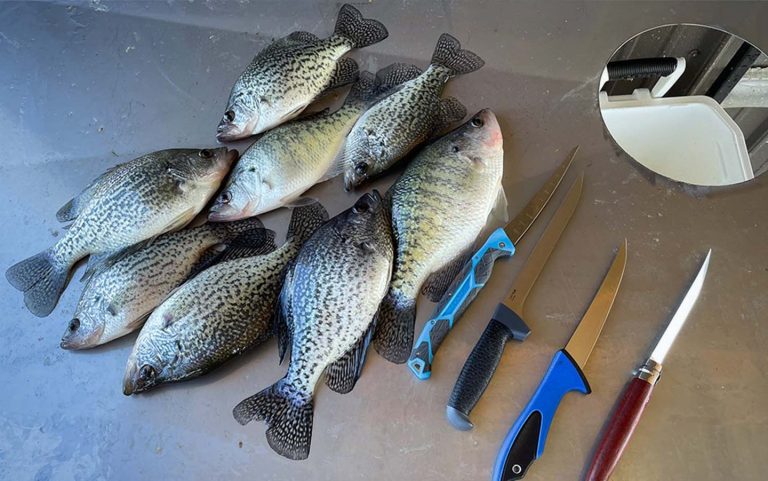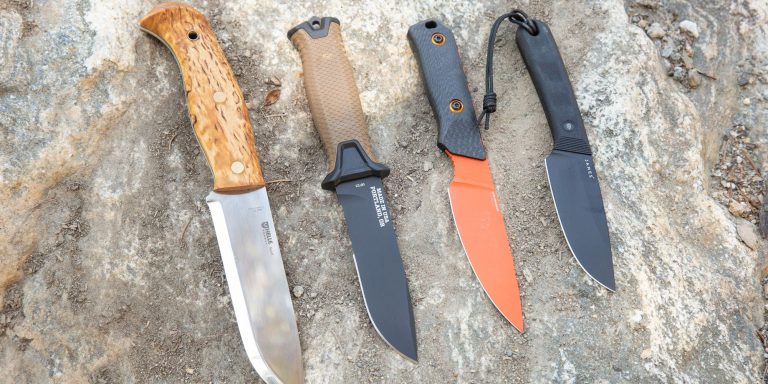Hunting Knife Throwdown: Fixed Blade Vs. Folding
When comparing fixed blade knives and folding knives for hunting, consider your preferences and needs. Fixed blades offer durability and strength, while folding knives offer portability and versatility.
Both have unique advantages, so choose the one that suits your hunting style and requirements. We will explore the differences between these two types of hunting knives, helping you make an informed decision for your next hunting adventure. Whether you prioritize reliability or convenience, this comparison will aid you in selecting the perfect knife for your outdoor pursuits.
So, let’s dive into the world of hunting knives and find out which one is the best fit for you.
1. Fixed Blade Vs. Folding: The Ultimate Hunting Knife Showdown
Fixed Blade Vs. Folding: The Ultimate Hunting Knife Showdown
- Durability and strength: Fixed blade knives are renowned for their robust build and ability to withstand heavy-duty tasks.
- Ease of maintenance: Without any moving parts, fixed blade knives are easier to clean and maintain, ensuring longevity.
- Versatility in hunting scenarios: These knives excel in situations requiring intense force, making them ideal for hunting and survival activities.
- Portability and convenience: Folding knives can be easily carried in pockets or backpacks, offering convenience during travel or outdoor adventures.
- Safety features: Many folding knives are equipped with locking mechanisms that secure the blade when in use, reducing the risk of accidental injury.
- Limited strength and durability considerations: Due to their design, folding knives may not possess the strength and durability of fixed blade knives, limiting their use in certain rigorous hunting situations.

Credit: www.youtube.com
2. Factors To Consider When Choosing A Hunting Knife
| Factors to Consider When Choosing a Hunting Knife | Blade material and hardness |
| Steel types for fixed blade knives | |
| Stainless steel vs. carbon steel for folding knives | |
| Impact of hardness on blade performance | Handle design and ergonomics |
| Gripping options for fixed blade knives | Handle materials for folding knives |
| Choosing the right handle for comfort and control | Blade design and functionality |
| Blade shape and its impact on tasks | |
| Choosing the right blade length for hunting | Special features and utility functions |
When selecting a hunting knife, there are several key factors to consider without any doubt. Blade material plays a crucial role in determining the knife’s performance. For fixed blade knives, various steel types exhibit different properties such as durability and corrosion resistance. Stainless steel is ideal for folding knives due to its resistance to rust and wear. The hardness of the blade also affects its performance, with a balance between hardness and toughness being important. Handle design and ergonomics greatly impact the knife’s comfort and control during use. For fixed blade knives, gripping options like finger grooves or textured surfaces provide stability, while folding knives offer diverse materials for handles, ensuring a secure grip. Considering blade design and functionality, the shape of the blade has an influence on specific tasks, and the appropriate blade length is determined by the hunting activities. Finally, special features and utility functions add extra value to a hunting knife.
3. Fixed Blade Vs. Folding: Performance In Different Hunting Scenarios
In hunting scenarios that involve dense vegetation and brush, the maneuverability of a hunting knife is paramount. Both fixed blade and folding knives have their advantages. Fixed blade knives tend to be more robust and offer greater strength and durability, making them ideal for navigating demanding terrain. On the other hand, folding knives offer convenience and compactness, allowing for easy access and deployment. When considering blade length, shorter blades may be preferred for maneuverability in tight spaces, while longer blades offer more reach and cutting power. In survival and emergency situations, both types of knives can prove invaluable, with folding knives offering the advantage of versatility and multi-use capabilities.
Another important factor to consider is the dependability of the knife under extreme conditions. While fixed blade knives generally have a stronger lock-up mechanism, the blade lock-up of folding knives can also be reliable, especially if they feature a secure locking system. Furthermore, the shape of the blade can affect precision and fine tasks. Some blades are specifically designed for control and precision cutting, while others may be better suited for heavier tasks.
| Fixed Blade | Folding |
|---|---|
| Strength and durability | Convenience and compactness |
| Maneuverability in dense vegetation and brush | Versatility and multi-use capabilities |
| Increase reach and cutting power with longer blades | Ease of access and deployment |
| Dependability under extreme conditions | Precision and fine tasks |
| Blade lock-up mechanism | Impact of blade shape on delicate tasks |
4. Maintenance And Care For Hunting Knives
Cleaning and lubrication
Proper maintenance and care are crucial for keeping hunting knives in optimal condition. Cleaning your knives regularly is essential to remove dirt, debris, and moisture that can cause rust and corrosion. To clean your knives, use mild soap and warm water, ensuring to dry them thoroughly afterward. Lubrication is also important to prevent wear and ensure smooth blade operation. Different types of lubricants are suitable for various knife types, including mineral oil, gun oil, or specific knife lubricants.
When sharpening your hunting knife, it’s important to choose the right sharpening tools for the job. Various sharpening techniques such as using a sharpening stone, honing rod, or electric sharpener can be employed. For fixed blades, sharpening should be done at the proper angle, typically between 20-25 degrees per side. For folding knives, honing the blade is crucial to maintain optimal performance. Store and transport your knives carefully, using sheaths for fixed blades and considering pocket clips for folding knives.
Conclusion
Ultimately, the choice between a fixed blade and a folding knife for hunting comes down to personal preference and specific needs. Both options have their advantages and drawbacks, and it’s important to consider factors such as portability, durability, and functionality when making a decision.
Fixed blade knives are known for their strength, stability, and reliability in tough hunting situations. They offer a sturdy construction that can handle heavy-duty tasks and are easier to clean and maintain. On the other hand, folding knives are more compact, lightweight, and convenient to carry.
They are versatile in different situations and can be easily stored in a pocket or backpack. It’s important to choose a knife that suits your hunting style and intended use. Whether you opt for the simplicity and ruggedness of a fixed blade or the convenience and portability of a folding knife, selecting the right tool will greatly enhance your hunting experience.
Remember to prioritize quality, functionality, and your personal comfort when making your decision. Happy hunting!

